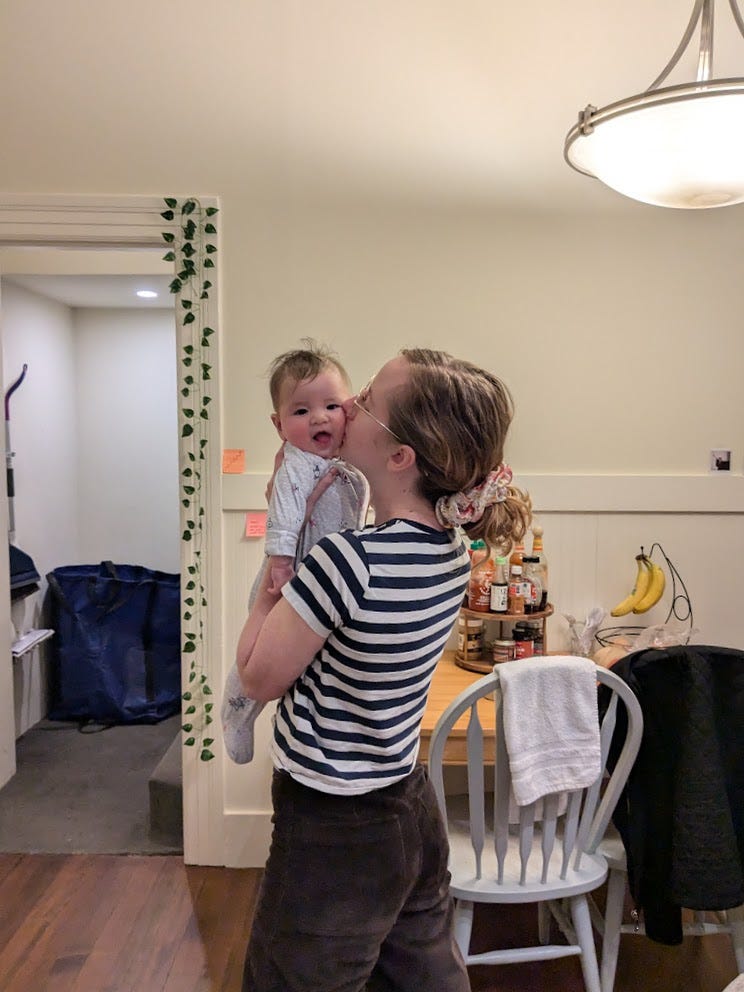What do I mean by “homegrown”? These projects are:
- Local: Creators have a good track record in the EA or AI Safety community
- Modest: The amount requested is not large; $5k would be meaningful
- Overlooked: Not already backed by large institutional funders like OpenPhil
If you’re a small donor or earn to give, consider giving to projects like these:
1. Feature-length documentary on SB 1047
By Michael Trazzi — $16k raised of $55k

Michael has already recorded interviews with the main characters of SB 1047: sponsors like Scott Wiener and Dan Hendrycks, proponents like Zvi Mowshowitz and Holly Elmore, and opponents like Dean Ball and Timothy B Lee. Now he needs the funding to turn it into a 1-hour feature documentary. This is a rare chance to sponsor a high-quality video narrative, and share it beyond our existing ecosystem. I’ve personally donated $10k towards this, and expect Michael to be able to effectively use much more.
More info & donate here: https://manifund.org/projects/finishing-the-sb-1047-documentary-in-6-weeks
2. Overview of AI Safety in 2024
By Gavin Leech — $8k of $17.6k raised
Gavin Leech is a forecaster, researcher and founder of Arb; he’s proposing to re-rerun a 2023 survey of AI Safety. The landscape shifts pretty quickly, so I’d love to see what’s changed since last year.
As I was writing this, regrantor Neel Nanda funded it to the minimum $8k ask! Neel adds:
I think collections like this add significant value to newcomers to the field, mostly by being a list of all areas worth maybe thinking about, and key links (rather than eg by providing a lot of takes on which areas are more or less important, unless the author has excellent taste). Gavin has convinced me that the previous post gets enough traffic for it be valuable to be kept up to date.
More info & donate here: https://manifund.org/projects/shallow-review-of-ai-safety-2024
3. Podcast series on Effective Altruism’s values
By Elizabeth Van Nostrand — $1.3k raised of $2.6k
Elizabeth & Timothy’s initial podcast was very well received, drawing extensive, thoughtful comments from a variety of folks. I’d be excited to see them continue this series, especially if they bring in folks involved with steering the EA community (like Sarah Cheng, who has extensively engaged with their points)
More info & donate here: https://manifund.org/projects/elizabeth-and-timothy-podcast-on-values-in-effective-altruism
4. Sentinel, a foresight and emergency response team
By Nuno Sempere — $16k raised of $90k
Nuno has long been one of our community’s most outspoken forecasters; now he’s working with Rai Sur to spin up an emergency response team (think: Army Reserve Corps, but for responding to existential risks). They’re already putting out a useful weekly report on biosecurity, geopolitics and other such topics.
More info & donate here: https://manifund.org/projects/fund-sentinel-for-q4-2024
5. Research on co-occurence of sparse autoencoder latents
By Matthew A. Clarke — $0 raised of $6.4k
TBH, I don’t know much about the merits for or against this line of research; I’m highlighting this grant because it’s overseen by Joseph Bloom, a past Manifund grantee who I and others have been very impressed with. If mechanistic interpretability is your jam, check this one out!
More info & donate here: https://manifund.org/projects/salaries-for-sae-co-occurrence-project
What else have we been up to?
It’s been a quiet couple of months, but here’s what Rachel and I have been busy with:
- Organizing The Curve, a premier conference on transformative AI
- Wrapping up EA Community Choice and paying out grants (writeup to come, someday…)
- Did you see that Marc Andreessen donated $32k to one of the projects 😮
- Filing our
taxesForm 990 for 2023. Last year, we raised ~$3m and disbursed ~$2.6m! - Waiting on Survival and Flourishing Funds to get back to us on our funding request
- Hacking on a system to spin up web apps from a single LLM prompt
- Dreaming about a new coworking space like Constellation or Lighthaven, but in SF
- And of course, taking some time off to care for our newborn baby, Ada

Cheers,
Austin
PS: want to make a larger grant? Manifund can facilitate donations via donor advised funds, crypto, and bank transfers.



I work at Open Philanthropy, and I recently let Gavin know that Open Phil is planning to recommend a grant of $5k to Arb for the second project on your list: Overview of AI Safety in 2024 (they had already raised ~$10k by the time we came across it). Thanks for writing this post Austin — it brought the funding opportunity to our attention.
Like other commenters on Manifund, I believe this kind of overview is a valuable reference for the field, especially for newcomers.
I wanted to flag that this project would have been eligible for our RFP for work that builds capacity to address risks from transformative AI. I worry that not all potential applicants are aware of the RFP or its scope, so I’ll take this opportunity to mention that this RFP’s scope is quite broad, including funding for:
More details at the link above. People might also find this page helpful, which lists all currently open application programs at Open Phil.